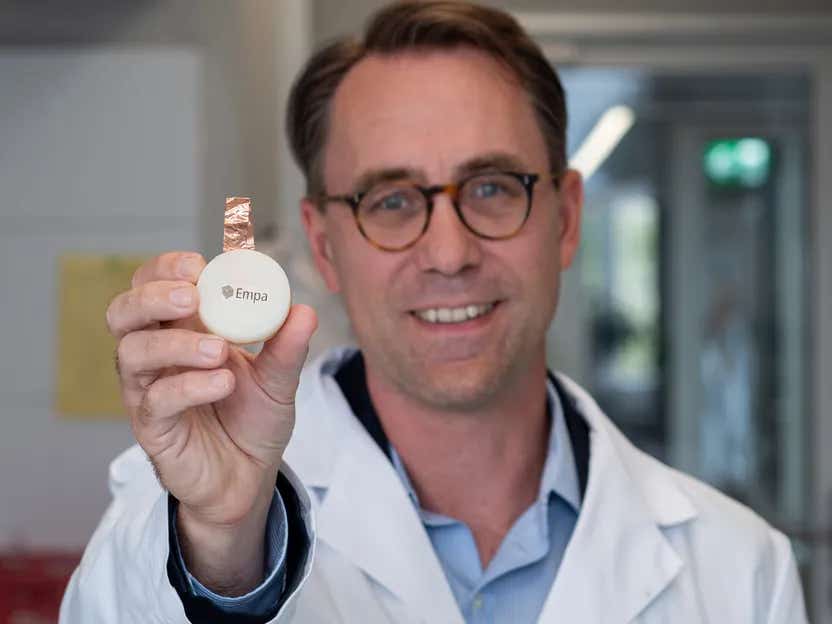A new low-calorie sweetener could also improve gut health, study shows
There is a growing concern about the global rise in diet-related health issues caused by excessive consumption of nutrients (mainly sugars).

[Aug 5, 2022: ACS Newsroom, American Chemical Society]
There is a growing concern about the global rise in diet-related health issues caused by excessive consumption of nutrients (mainly free sugars and fats). (CREDIT: Creative Commons)
The Food and Agriculture Organization of the United Nations (FAO) and the World Health Organization (WHO) describe carbohydrates as a major source of energy provided in the human diet, accounting for between 40 and 80% of the total energy requirements.
Since the 1970s, specific health claims and recommendations have been steadily made around the world regarding the daily intake of dietary fibers due to the health benefits they provide.
On the other hand, there is a growing concern about the global rise in diet-related health issues caused by excessive consumption of nutrients (mainly free sugars and fats), leading to imbalanced energy homeostasis and, consequently, the development of cardiovascular diseases, diabetes, gastrointestinal infections, obesity, and some forms of cancers, among others.
The potential link between these diseases and the high intake of free sugars has been known for many years. Concerned over the potential adverse consequences, in 2015, several public health policies from the WHO, the Scientific Advisory Committee on Nutrition (SACN), and the Dietary Guidelines Advisory Committee (DGAC) recommended reducing the consumption of sugar to less than 5–10% of the total energy intake.
Related Stories:
From the wide variety of sodas, candies and baked goods that are sold worldwide, it’s clear that people love their sweet treats. But consuming too much white table sugar or artificial sweetener can lead to health issues.
In the search for a better sweetener, researchers in ACS’ Journal of Agricultural and Food Chemistry now report a low-calorie mixture that is as sweet as table sugar and, in lab experiments, feeds “good” gut microbes.
Artificial sweeteners have exploded in popularity because they let people consume sweets without the calories. However, while they’re considered safe for human consumption, studies in animals and humans suggest that some of them can stimulate appetite, leading to increased food consumption and weight gain, as well as other negative health outcomes.
So, researchers have been turning to the study of low-calorie or extremely sweet substances from natural sources as possible replacements. For example, galactooligosaccharides — found in mammalian milk — are low-calorie sugars with prebiotic activity that can be a source of energy for beneficial gut microbes, but they’re not quite sweet enough to replace table sugar.
Alternatively, extracts from the luo han guo fruit contain mogrosides — compounds 200 to 300 times sweeter than table sugar. But these extracts sometimes have off-flavors, which can be removed with enzymes. So, F. Javier Moreno and colleagues wanted to take advantage of the best aspects of both natural substances, using enzymes to modify mogrosides while simultaneously producing galactooligosaccharides for a brand-new low-calorie sweetener.
The researchers started with lactose and mogroside V (the primary mogroside in luo han guo fruit). When they added β-galactosidase enzymes, the researchers obtained a mixture that contained mostly galactooligosaccharides and a small amount of modified mogrosides.
A trained sensory panel reported that the new combination had a sweetness similar to that of sucrose (table sugar), suggesting it could be acceptable to consumers.
In test tube experiments, the new sweetener increased the levels of multiple human gut microbes that are beneficial, including Bifidobacterium and Lactobacillus bacterial species. In addition, increases in bacteria-produced metabolites, such as acetate, propionate and butyrate, indicated that the mixture could potentially have a prebiotic effect on the gut microbiome.
The researchers say that the new sweetener holds promise in these initial analyses, and their next step is to more closely study the substance’s impact on human gut health.
The authors acknowledge funding from Optibiotix Health Plc (York, U.K.), the Spanish Ministry of Science, Innovation and Universities, and the European Union’s Horizon 2020 research and innovation program. One of the study’s authors is employed by Optibiotix Health Plc.
For more science and technology stories check out our New Discoveries section at The Brighter Side of News.
Note: Materials provided above by American Chemical Society. Content may be edited for style and length.
Like these kind of feel good stories? Get the Brighter Side of News' newsletter.
Tags: #New_Discoveries, #Gut_Health, #Microbiome, #Sweeteners, #Science, #Obesity, #Research, #The_Brighter_Side_of_News
Joseph Shavit
Head Science News Writer | Communicating Innovation & Discovery
Based in Los Angeles, Joseph Shavit is an accomplished science journalist, head science news writer and co-founder at The Brighter Side of News, where he translates cutting-edge discoveries into compelling stories for a broad audience. With a strong background spanning science, business, product management, media leadership, and entrepreneurship, Joseph brings a unique perspective to science communication. His expertise allows him to uncover the intersection of technological advancements and market potential, shedding light on how groundbreaking research evolves into transformative products and industries.



